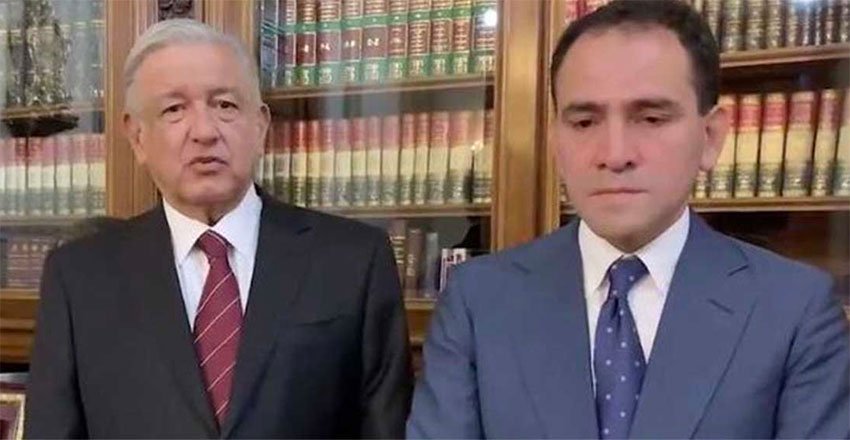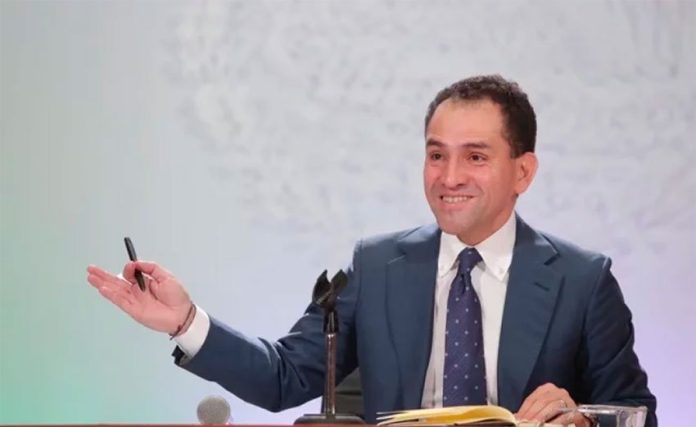President López Obrador is the sole force behind the government’s economic policy, according to an energy sector executive who warned that the new finance secretary is likely to be “trodden on.”
Rajan Vig, founder of oil trading company Indimex Marketing and Trading LLC in Mexico City, told Bloomberg that “there is only one person that runs economic policy in Mexico and that is AMLO.”
Vig’s comment came a day after Carlos Urzúa announced his resignation as finance secretary, citing the public policy decision making process within the government, the appointment of officials with no knowledge of public finances by people “with a clear conflict of interest” and “discrepancies over economic matters.”
López Obrador said yesterday that he and senior officials in his administration had differences of opinion with Urzúa but rejected the conflict of interest charge.
The president said that one disagreement was about the National Development Plan – a wide-ranging public policy blueprint – explaining that Urzúa supported a version of the plan that perpetuated rather than ended the neoliberal policy model of the past.
Vig said that the conservatism of Urzúa, an adherent of fiscal discipline, was likely behind the rift between him and the president.
“Urzúa was diligent and highly conservative when analyzing opportunities. That’s what I gathered the issue was,” he said.
Vig said that Urzúa’s resignation could lead to higher spending by the government on Pemex’s refining business, which would divert funds from the state oil company’s exploration and drilling business.
López Obrador has vowed to make Mexico more self-sufficient with regard to its energy needs, a goal that is outlined in the National Development Plan.
Canadian investment bank TD Securities said the departure of Urzúa, who one analyst described as “the adult in the room in the AMLO administration,” could trigger another junk rating for the heavily indebted oil company a month after Fitch cut its Pemex rating from investment grade to speculative.
Urzúa’s exit “opens the door to fiscal slippage in the 2020 budget and, crucially, a lack of strong impetus to address the bubbling Pemex ‘crisis’,” said Sacha Tihanyi, deputy head of emerging markets strategy.

The oil output of the state company, which has debt of US $106.5 billion, has declined for 14 consecutive years with its refineries only operating at 35% of their capacity due to underinvestment.
In addition to dealing with debt and declining output, Pemex was given responsibility for managing the construction of the US $8-billion refinery on the Tabasco coast after López Obrador announced in May that the government had scrapped the bidding process because bids from private companies were too high and the project would take too long.
Pemex and the Secretariat of Energy have been given the task of building the refinery in just three years but business groups and analysts have warned that the project poses a range of risks especially considering that the government has little or no experience in the field.
Investors fear that the project could drain Pemex’s resources, causing dwindling oil production to decline even further.
But newly-appointed Finance Secretary Arturo Herrera told reporters that Pemex’s business plan will focus on investment in oil production and that refinery investment is minor compared to the total amount of funds the government will inject into the company.
With regard to an interview he gave to the Financial Times in March in which he said that the refinery project had been postponed only to be promptly contradicted by the president, Herrera claimed he was misquoted.
López Obrador’s assertion of authority over the then undersecretary could be a sign of things to come.
Herrera will likely be “trodden on,” Vig told Bloomberg, “unless he can convince AMLO to act based upon economic indicators.”
Source: Bloomberg (en)
